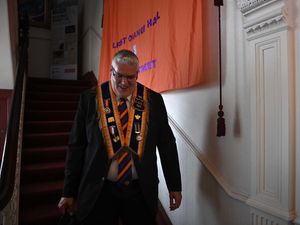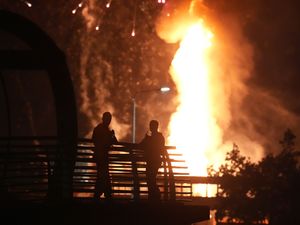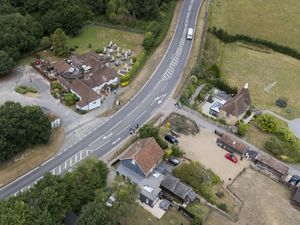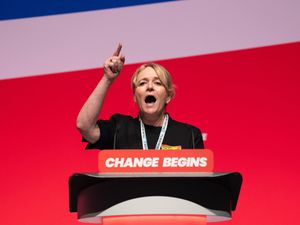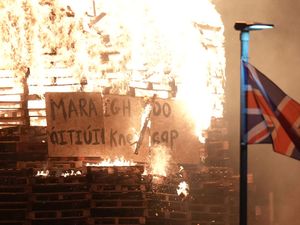Priti Patel says she would report neighbours over ‘rule of six’ breaches
It comes as the national chairman of the Police Federation of England and Wales called for guidance over enforcement of the measures.

The Home Secretary has said she would report breaches of the “rule of six” coronavirus restrictions, while suggesting that families stopping to talk in the street could be breaking the new laws.
Priti Patel said she would report her neighbours if it was a gathering of more than six, as she defended the Government over an exemption which says larger groups will be allowed to go hunting.
It comes as the national chairman of the Police Federation of England and Wales called for guidance over enforcement of the measures.
When asked if she would call the police on her neighbours if they breached the new rule, Ms Patel told BBC Breakfast on Tuesday: “I don’t spend my time looking into people’s gardens.”
Pressed on the topic, she said: “I think anybody would want to take responsibility and ensure we’re not spreading this awful disease and therefore if I saw gatherings of more than six people clearly I would report that.”
Appearing on BBC Radio 4’s Today programme, Ms Patel said that two families of four stopping for a chat on the way to the park is “absolutely mingling”.
“You have got to put this in the context of coronavirus and keeping distance, wearing masks,” she said.
“The rule of six is about making sure that people are being conscientious and not putting other people’s health at risk.”
The Home Secretary added: “Mingling is people coming together. That is my definition of mingling.”
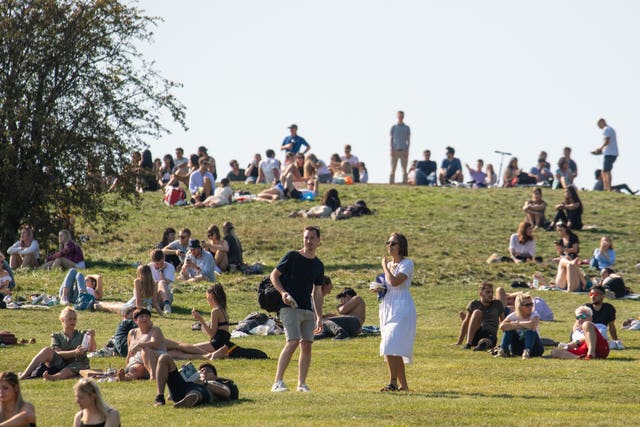
It follows comments by Policing Minister Kit Malthouse, who suggested that people should ring the non-emergency 101 number if they have concerns that their neighbours are breaching the laws.
Any social gathering of more than six people in England is against the law, with people facing fines of up to £3,200 if they do not abide by the new measure, which applies to both indoor and outdoor settings.
Government guidelines on the rule include an exemption for shooting – including hunting and paintball that requires a shotgun or firearms certificate licence – as an organised sport that can be done with more than five others.
When asked about the exemption while appearing on Nick Ferrari’s show on LBC, Ms Patel said there were certain exemptions that need to exist, such as outdoor sports.
Asked if it was possible to have a birthday party on a grouse shoot, the Home Secretary replied: “Theoretically, you might want to give it a go. It’s not my cup of tea at all, I’ll be very candid about that.”
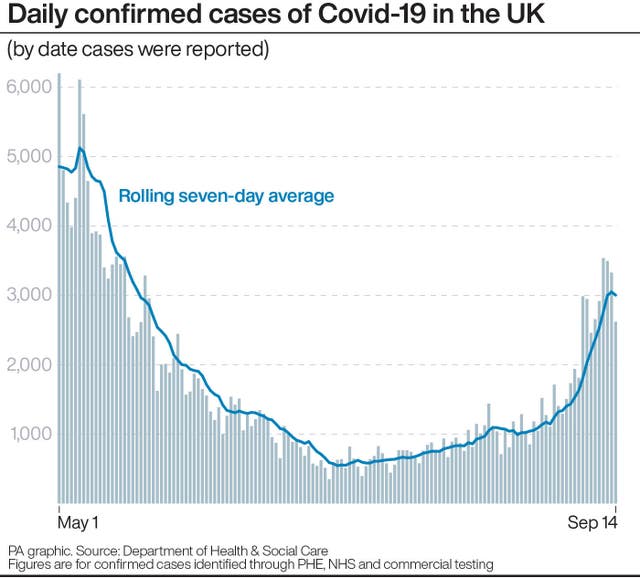
On confusion over numbers permitted during different events, Ms Patel said: “It’s not just about the numbers, this is also about making sure that coronavirus measures are also followed.
“Even in football, even in rugby, in other exempted sports, they have to still follow the coronavirus rules and guidance, in terms of social distancing, in terms of cleanliness, hygiene, wiping things down.”
Other physical activities that can be done in groups of more than six include team sports such as football, hockey and netball, as well as sailing, angling and polo.
Meanwhile, end of life charity Marie Curie said it had received calls from bereaved families who were unsure on how many people are allowed to attend a wake.
Matt Williams, head of information and support at the charity, called the guidance “unclear”, adding: “It suggests safe ways that people can hold religious ceremonies after someone dies with up to 30 people, but there are no exceptions to the “rule of six” for people who want to hold a non-religious wake to celebrate the life of someone who has died.
“This means you could have a religious celebration with 30 people but only six could attend a non-religious celebration.
“The Government simply must begin to give more consideration to dying people, their relatives and loved ones when announcing new Covid-19 guidance – the people we are speaking to are experiencing additional and unnecessary distress at what is already a very difficult time.”
Chairman of the Police Federation of England and Wales John Apter said that police officers on the front line were “trying to interpret” the rules, which came into effect on Monday.
In response to a question about having “more guidance” on Good Morning Britain, he responded: “Maybe we should have ‘guidance’, because we haven’t had any yet.”
He said he understood the Government faced a “very fast-moving” situation, adding: “But my colleagues who are on the front line trying to interpret this law, trying to educate and work with the public, are now being accused of asking (people) to snitch on their neighbours.”

